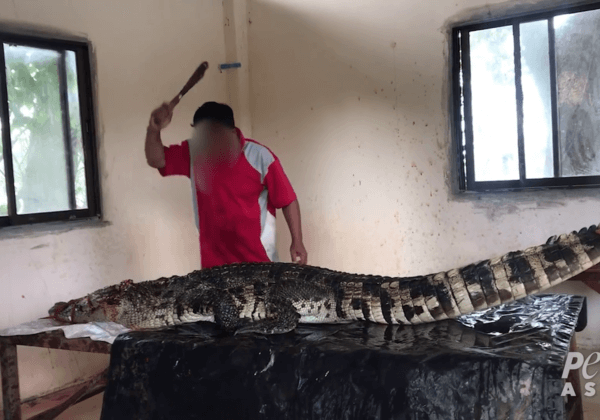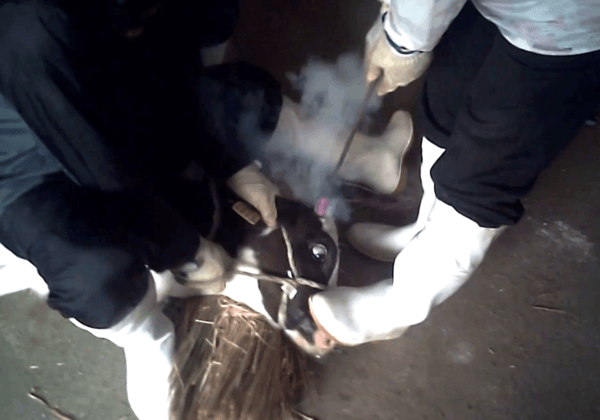Arrests Made After Elephant Is Shot 70 Times and Mutilated by Hunters
Six arrests in the case of an elephant who had been shot 70 times and whose tusks had been hacked off will hopefully serve as a warning to others. Only about 1,500 Borneo pygmy elephants remain in the world. Last week, officials in Malaysia discovered the mutilated corpse of one of these endangered animals on the island of Borneo. The poachers had left his body half-submerged in a river and tied to a tree on the bank.
Cruel Poachers Shot This Sabah Elephant 70 Times Before Removing Tusks & Leaving Body in River https://t.co/3EHeE86dwy
— WORLD OF BUZZ (@WORLDOFBUZZ) September 30, 2019
Following an investigation into the gruesome attack, authorities have announced six arrests in the case. They haven’t released the suspects’ names, but they say that they’re all male, between the ages of 48 and 68, and being held pending further investigation. Two of the six men were reportedly workers in charge of ensuring that elephants didn’t enter a nearby plantation, but authorities say the real motive behind the killing was likely a desire to take the elephant’s tusks.
Police recovered the tusks, which had been wrapped in plastic and buried, about 6 miles from where the elephant’s body was discovered. They’re now working to track down the tusks’ intended buyers.
Post-mortem finds elephant in Malaysia shot 70 times at close range, tusks removed https://t.co/9gjD5L5uwq pic.twitter.com/TTbmoSbuFz
— AsiaOne (@asiaonecom) September 30, 2019
As elephants struggle to survive in the face of poaching, dwindling food supply, and conflicts with humans because of encroachment on their habitat, no hunting of them can ever be considered “responsible” or “sustainable.” True elephant “conservation” means protection, not more killing.
What You Can Do
Before you support a “wildlife” or “conservation” group, ask about its position on hunting. Some groups, including the National Wildlife Federation, the National Audubon Society, the Sierra Club, the Izaak Walton League, The Wilderness Society, and the World Wildlife Fund are in favor of or do not oppose sport hunting.









